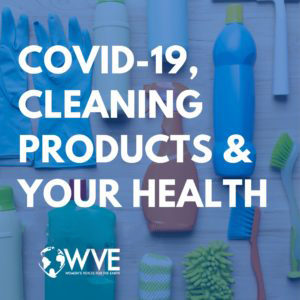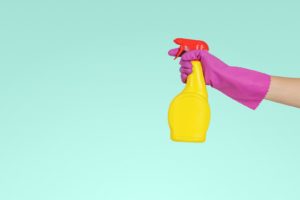
A titanic amount of column inches could be—and has been—written about the current and possible repercussions of the COVID-19 pandemic. This crisis has highlighted weaknesses in infrastructure, government, the economy, and healthcare, to name but a few, and has called into question the basic systems that we have come to treat as sacrosanct. The global consequences will be vast in scope and duration, and the world will be vastly different on the other side.
Yet, there are silver linings to be found. It’s important to remember that these moments can pave the way for monumental change. Consider the Black Death, and it’s direct and indirect influences on the Renaissance, one of the most revolutionary periods in human history across all disciplines, or the Cholera outbreak in London and John Snow’s work on tracing the source bacteria, which helped establish the fields of epidemiology and public health research. These are moments in which we can make lasting change to better our future.
Women’s Voices For The Earth

A Posner Center tenant, Women’s Voices for the Earth (WVE) is one of the organizations trying to affect that change. Formed in 1995, their primary goal is to amplify women’s voices towards eliminating toxic chemicals from our environment. According to WVE, women are disproportionately impacted by toxic chemicals. Through various mediums such as cosmetics, period and intimate care products, and household cleaners, women are at risk for much greater exposure to harmful chemicals, which puts their personal health in jeopardy, as well as their children. The mission of WVE is therefore quite clear: To shift industries, especially those that market to women, away from harmful chemicals and towards safer products.
With the maelstrom of pandemic-induced panic buying, where cleaning supplies have been decimated from most store shelves, disinfecting has increased exponentially, both for individuals in private residences, and for businesses and public places. How can we avoid exposing ourselves to harmful chemicals, while still performing our due diligence in response to COVID-19? Alex Scranton, Director of Science and Research at WVE, answered this question and more in a recent webinar entitled COVID-19, Cleaning Products & Your Health. Here are some of the tips Scranton shared on how to disinfect your surroundings safely.

The majority of popular disinfectants contain either quaternary ammonium chlorides (colloquially known as quats) or chlorine bleach. While they are certainly powerful, they both pose significant health hazards.
Health Hazards of Quats
- Potent skin irritants. Cause rashes and dermatitis
- Can irritate the lungs and may lead to breathing problems
- Cleaning workers exposed regularly to quats have developed occupational asthma
- A study on mice has found a possible link between quats and reproductive harm
- Overuse of quats is contributing to antimicrobial resistance, leading to ‘superbugs’ that are resistant to antibiotics
Health Hazards of Chlorine Bleach
- Significant lung and eye irritant
- Can cause chemical burns on skin
- Leading cause of chemical eye injuries in children in the category of cleaning products in the U.S.
- Leading cause of calls to Poison Control for the category of cleaning products
For safer disinfectants, Scranton recommends those with active ingredients such as:
- Alcohol/ethanol
- Hydrogen peroxide
- Lactic acid
- Peroxyacetic acid
- Citric Acid
- Thymol
WVE also recommends cleaning with regular soap (preferably fragrance-free) and water, as well as social distancing, as these have been proven to be effective at preventing the spread of COVID-19.
If you’d like to learn more, watch the entire webinar COVID-19, Cleaning Products & Your Health or read Safer Disinfecting At Home in the Times of Coronavirus. Check out WVE on womensvoices.org and visit them on social media:
https://www.facebook.com/WomensVoices/
https://www.linkedin.com/company/women’s-voices-for-the-earth/
Instagram: @womensvoices
Twitter: @women4earth
